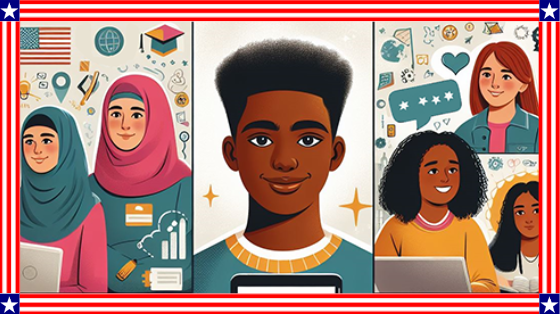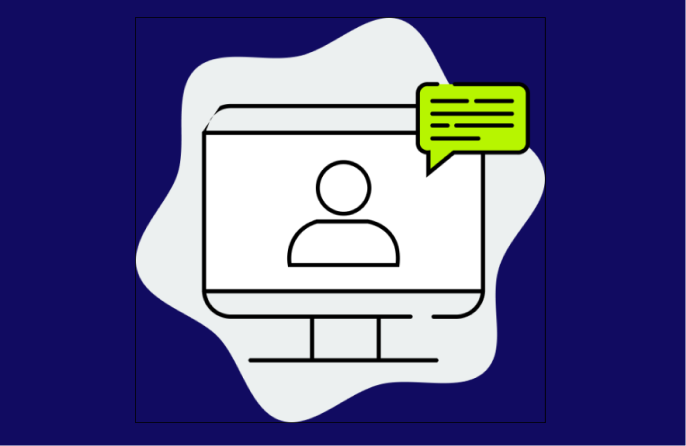Rethinking Civic Engagement with Tech Innovation
+400 Points
Get ready for some political fireworks with the presidential election just around the corner! This Challenge is all about how technology can be used to light up the world of civic engagement. Election season can be a polarizing time, for example: left vs right; Democrats vs Republicans; young voters vs older voters. But, does it need to be? How can technology be used to foster healthy dialogue and engage in political action? Get those creative juices flowing, as you brainstorm out-of-the-box ideas for products, businesses, and marketing campaigns that use emerging technologies to transform youth civic engagement. Pitch your idea to Lenovo with a 3-5 minute video and win big $$$!
In this Challenge, you’ll address the question: How can we leverage emerging technologies to help more young people get involved in civic life (e.g. vote, run for office, etc)?
Note: This Challenge is still available to earn points!! The prize money was awarded to past winners.


Skills you'll develop
- Problem Solving
- Communication
- Social Awareness
Create
You're ready to CREATE a prototype of your idea. This is what you'll use to explain your brilliant idea to the judges!
Choose ONE of the categories for your solution: product design, business concept, or marketing campaign. You can use the selection checklist to help you choose a category.
Create a Marketing Campaign
It's time to get creative and CREATE a prototype of your idea. This is what you'll use to explain your awesome solution!By the end of the Create phase, you should be able to:
Show your Marketing Plan
Explain how you created your prototype(s)
Share your feedback and demonstrate how you revised your prototype(s)
Be ready to create your video pitch
Understand the Create a Marketing Campaign Phase
⏱️Time: 4-5 Hours (Week 3 of Challenge)
✏️Use the optional KNOtebook to record your ideas
💼 Mentor: Get feedback from a mentor, and others, on your marketing ideas
🎯 Future Ready Skills: Problem-Solving, Collaboration
Marketing Campaign
In this phase, you'll create a plan, and draft some of the assets for a marketing campaign. Perhaps, you want to run a social media campaign, create an ad, or plan an event? You decide.
Meet a Professional
Yay! You’re going to create marketing campaign! First, let’s meet a marketing professional.
Awareness Campaigns
Awareness campaigns are one of the most popular, effective, and flexible ways to call attention to an issue or problem. An awareness campaign is an appeal for people to take a specific action in support of a larger goal. Awareness campaigns can take many forms -- here are just a few! What will inspire you? Flip the cards.

Ribbons
Ribbons
Red ribbons provide awareness and demonstrate compassion for people living with AIDS. Red was chosen for its "connection to blood and the idea of passion". The red ribbon is an internationally recognized symbol of AIDS awareness and has led to many other awareness ribbons.
Ads
Ads
The World Wildlife Foundation created an ad campaign that makes people think about their paper usage and the impact on trees in South America. The general message is that the survival of the forest depends on even such a small thing like taking a paper towel.
Text Messaging
Text Messaging
Save the Children Action Network contacted voters via text messaging and hand-written postcards to increase voter turnout, educate people on candidate's stances on early learning issues, and advocate for kids. The campaign contacted 270,000 voters (2020).
TikTok
TikTok
#MusicSaves wanted to raise awareness about the importance of music education and the "powerful social, emotional, and cultural benefits" that music education provides. Users created a TikTok video to show how music changed their life. The initiative had over 164.4 million views (2020).
Art & Twitter
Art & Twitter
Change the Ref is an organization devoted to raising awareness about mass shootings, in the wake of the school shooting in Parkland, Florida. This piece was part of an effort to create large scale public art pieces. It had 115.6 Retweets, 7,010 Quote Tweets, and 456.8K Likes
Challenge
Challenge
The Ice Bucket Challenge was created to promote awareness and raise funds for ALS. It encouraged nominated participants to be filmed having a bucket of ice water poured on their heads and then nominating others. It raised over $220M worldwide for the disease (2014).Your Campaign Plan
In this section, you’ll design your plan for a campaign and any assets that need to be created. As you read through the steps in the slide show, start planning your own campaign. You can use the template in your student KNOtebook.
You may wish to use this Google Doc Marketing Plan template which is also in your KNOtebook.
Prototyping Materials
Use any of the following tools to create your idea.
Testing & Feedback
Now that you have your first prototype, it's time to share it and get feedback so that you can improve it.
Testing Plan
Watch the video to see an example of creating a testing plan to get feedback.
Testing Suggestions
Getting Feedback
Consider using any of the following methods to structure and organize your feedback-gathering process. Select the plus signs.
Iterative Process
Iterating
After you get feedback, it’s time to make changes to your prototype or prototype another part of your product. Remember, the goal is not for your prototypes to be universally loved. The goal is to get as much feedback as you can to help you make your concept better. Continue to prototype, test, and iterate as much as you can, until you are satisfied with your prototype. This may be a multi-day process and is not to be rushed.


Mentor Moment
Get feedback from a professional who will be judging your project!
Consider how you will test and get feedback from a mentor who may be reviewing your prototype online and giving written feedback. Depending on what you create as prototypes, you could scan, take a photo, or capture video to share and get feedback. You may want to use the “I Like, I Wish, What If...” or the grid method.
Get feedback on your prototype now!
PRO Criteria
Continue to prototype, test, and iterate, as time allows and you feel happy with your final prototype.
Make sure your prototype demonstrates that your idea is:
Purposeful: Addresses the problem
Results: Will have an impact
Original: Is unique from everything that already exists or builds on something in a new way

Prototyping is an iterative process and involves the following:
Next Steps
Ready to Move On?
Do you feel prepared to create your video pitch? Can you show and explain the following. If so, great for you! The hard part is over now you get to share your idea! Flip the cards to see if you're ready to move on to "Pitch."

Prototype Plan
Prototype Plan
How did you plan your prototype? Share and explain your plan with someone. Did you use it to guide your process? Did you change it?
Prototype Creation
Prototype Creation
How did you create your prototype? What materials did you use? What was challenging? How did you overcome those challenges? Show the different prototypes that you created.
Prototype Feedback
Prototype Feedback
How did you get feedback on your prototype? What method(s) did you use? How useful was the feedback? What kind of revisions did you make based on the feedback?